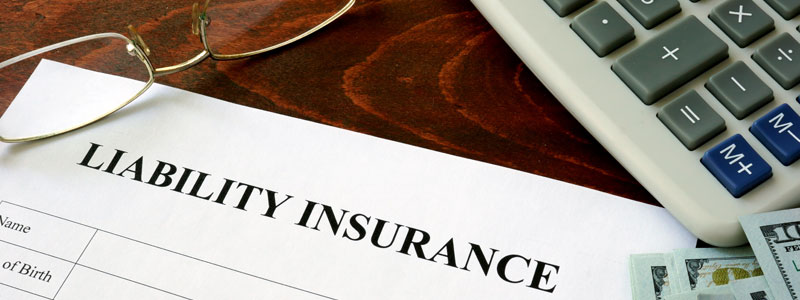
Specifically, Professional Liability Insurance doesn’t cover any criminal charges stemming from services rendered by you or your company. It also might not cover all types of civil prosecution, and in some cases, even some types of damages, like those stemming from data breaches due to software security, also might not be covered. When dealing with Professional Liability Insurance, your best bet is assuming your plan covers only what’s explicitly stated, and nothing more.
As for what it does cover, the most common types of claims covered are negligence, misrepresentation, inaccurate advice, and violation of good faith and fair dealing. It must be noted that none of these cause direct damages, but they can have negative effects on customers’ lives or economies.
For example, any advice that has financial implications, while well-meaning, can go wrong if markets tumble in such a way that a professional might not be expecting. In that case, if the customer decides to sue the advisor or his business, they would be covered under this policy.
On the other hand, bigger claims – like a house crumbling down within a few months after going up for no apparent reason – aren’t covered by these policies. These incidences cause major material losses, potential loss of lives, and even possible criminal liability.
You mention only financial losses… but I’m a physician. How does that work?
For physicians, Professional Liability Insurance often takes the name of Malpractice Insurance. Unlike in other professions, naturally, physicians don’t often cause usual financial losses. However, even the best physicians in the world can at times be sued for malpractices.
This stems from the actual definition of malpractice, as opposed to the popular one. Malpractice implies any kind of action or advice performed as a professional service, or where your profession makes a person trust your judgment, that end up causing harm.
Physicians are more often sued for malpractice either for treatments going wrong and causing side effects or because a patient isn’t happy with the treatment and found out dissenting opinion. Such would have stated that a different course of treatment would have been better.
Those cases are covered, in general, except in the odd case where criminal liability is established. However, a minority of physicians ever face such cases – the ones where people die because the doctor used a wrong approach or judgment. Malpractice is a much more relative term than most people think, and it’s actually much more common than most would expect.
In either case, Malpractice Insurance covers you in case a lawsuit is brought against you claiming you were negligent in your professional undertaking.
Does this cover all such suits against me?
As with many liability insurance policies, most plans only offer coverage on a claims-made basis, so the policy will only cover claims made while it is active. Moreover, most policies of this type also establish a timeframe where services must have been rendered in order for the coverage to apply, and also a window for possible claims. If claims are made after the insurance expires, the insurance company might reject coverage, even if the service was rendered when coverage was active.
To help with these issues, some insurance companies offer extension plans, usually allowing the customer to extend coverage to before or beyond expiration dates. Still, since expiration dates and coverage post-expiration can be difficult to ascertain, most find it better to simply not allow their policy to lapse, as some companies will refuse coverage if the policy lapses for even just a day.
I’m not really sure I need it…
And you might not. While other types of insurance are recommended for pretty much all businesses, professional liability is a much more specific kind. Generally, lawyers, physicians, accountants, engineers, and most consultants take these policies, but there isn’t a clear line drawn on who needs it and who doesn’t.
The best way to know if you might need a professional liability insurance policy or not is examining the professional services you render. Is it possible that any advice or task you perform as part of a contract might end up causing financial loss by accident?
Could an upset client bring up a lawsuit against you, claiming malpractice, even when the financial losses stemming from your work were impossible to predict? Or even more, is it possible that, due to your services, other parts of a system you’re not privy to could malfunction and cause financial losses? What about the advice you give your clients?
If a client of yours needs investment advice, and you tell them about what you believe will perform best, but it doesn’t and they lose their money, could you be liable?
If the answer to any of those is yes, then you might be the kind of professional who’ll need this policy. While there’s no doubt you perform your services in the best possible manner and with diligence, it’s impossible to always avoid unpredictable scenarios.
Last Words
In cases where you have offered a specialist opinion, clients might, and in some parts of the world will bring up lawsuits if they can prove a claim. Particularly in the US, where people can sue others at the slightest provocation, having a Professional Liability Insurance policy is basically mandatory.
Disclaimer: Our service is not intended to be, nor should it be construed as financial advice. We help our readers make informed decisions via impartial information and guides. Where appropriate, we may introduce partner companies who can provide services relating to financial products.